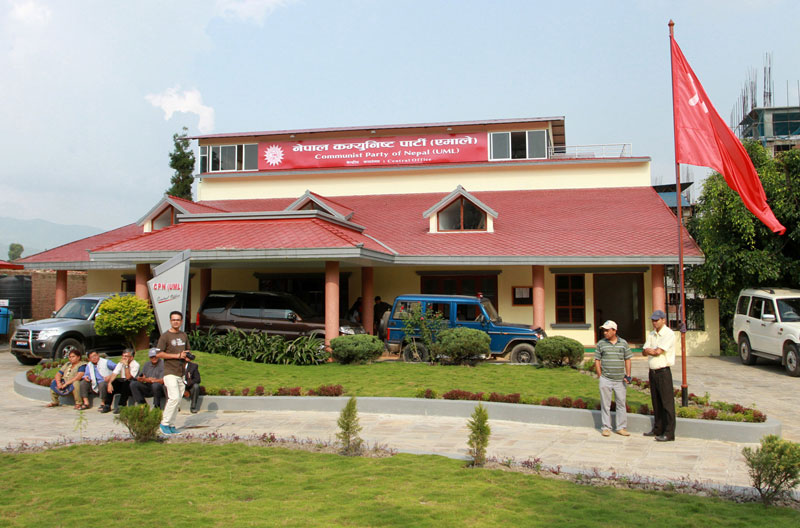NCP dwells on amending charter to accommodate Gautam
Kathmandu, February 23
The issue of forming a taskforce to amend the constitution to make National Assembly members eligible for the post of prime minister was raised in the ruling Nepal Communist Party (NCP)’s Secretariat meeting yesterday.
NCP General Secretary Bishnu Paudel said the issue was raised in the meeting but no decision was taken to that effect.
According to an NCP source, the proposal to form a taskforce was put forth by NCP Co-chair Pushpa Kamal Dahal and was aimed at serving the interests of NCP Vice-chair Bamdev Gautam, who recently told party leaders that he would accept the party’s proposal to become an NA member only if the constitution was amended to make Upper House members eligible for the post of prime minister.
An NCP source said amending the constitution to serve the interests of Gautam would undo constitutional checks and balance. Gautam could not be contacted for comments.
As per the provisions of the constitution, only members of the House of Representatives are eligible to become the prime minister.
The talk of amending the constitution didn’t go well with the main opposition party and constitutional experts.
Spokesperson for the Nepali Congress Bishwa Prakash Sharma wrote an angry post on twitter reminding the NCP that demands of Madhesis, Janajatis, Dalits, Tharus and other groups were rejected. “Now an effort is being made to amend the constitution for the sake of a few people. What theatrics are the comrades staging without holding national consultation?” wondered Sharma.
Former prime minister Baburam Bhattarai, who chairs the federal council of Samajbadi Party-Nepal, tweeted that if a person who had lost election was made chief of the executive, then that would not only be a mockery of democracy but murder of democracy. He said the ruling party should instead try to amend the constitution to have presidential system and fully proportional Parliament.
Constitutional expert Bipin Adhikari cited the example of the United Kingdom. “In recent decades, the UK prime minister has always been from the House of Commons, the Lower House of the Parliament,” he added.
He said India was an exception as it allowed the Upper House members to become the prime minister. “There can be no parallel between Nepal and India on this matter, as both countries have different electoral systems and strength of the Upper House,” he argued.
He said although members of HoR in Nepal were elected through the first-past-the-post system and the proportional representation system, they were eligible to become the PM as they were directly represented by the electorate. “But that is not the case with NA members,” he said. NA members are elected by an electoral college, comprising provincial assembly members and chiefs and deputy chiefs of the local levels. Some members of the NA are nominated by the president.






